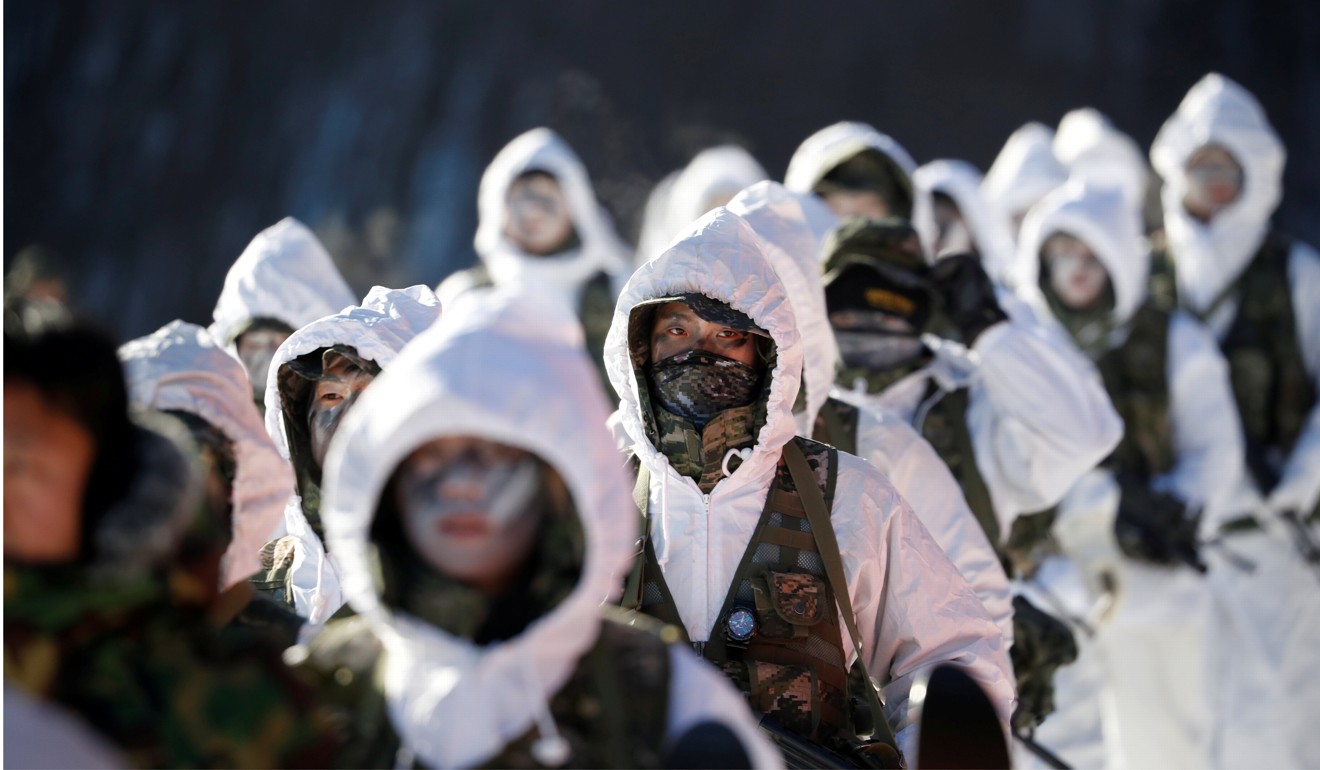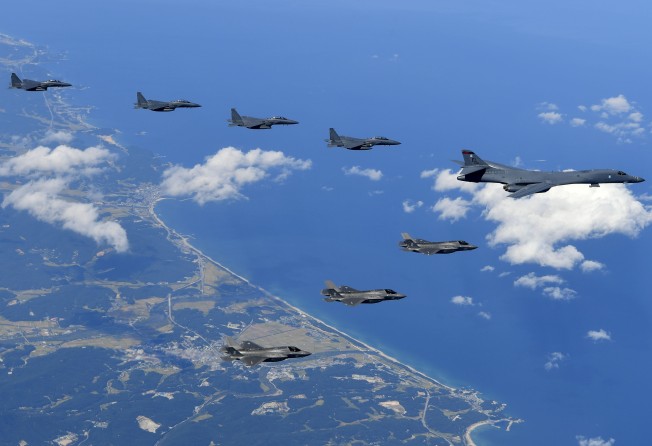
US ‘indefinitely’ suspends military exercises on the Korean peninsula
At the same time, Trump issues executive order extending ‘national emergency’ and reauthorising economic restrictions against Pyongyang

The US has indefinitely suspended select military exercises on the Korean peninsula in an effort to support denuclearisation negotiations with North Korea, the Pentagon announced on Friday.
It is a concession that analysts say aims to engender “good faith” on both sides as Washington and Pyongyang look ahead to further talks on the fate of the peninsula, after the historic meeting between US President Donald Trump and North Korean leader Kim Jong-un in Singapore last week.
Dana White, chief spokeswoman for the Pentagon, said the move included “suspending Freedom Guardian along with two Korean Marine Exchange Programme training exercises scheduled to occur in the next three months”.
The decision follows Trump’s abrupt pledge to cancel joint military drills with South Korea after the Singapore summit.

The Pentagon’s announcement came after US Secretary of Defence Jim Mattis’ meeting on Friday with US Secretary of State Mike Pompeo, General Joseph Dunford, chairman of the Joint Chiefs of Staff, and Trump’s national security adviser John Bolton to discuss the Singapore summit.
The statement said “additional decisions will depend upon [North Korea] continuing to have productive negotiations in good faith”, referring to upcoming talks led by Pompeo.
It did not elaborate on what the “additional decisions” would be.
Zhao Tong, a nuclear policy fellow at the Carnegie-Tsinghua Centre for Global Policy in Beijing, said the Pentagon’s announcement could pave the way for US officials like Bolton to kick-start those negotiations.
“It’s a longer-term approach to start with basic, simple steps [such as suspension of military exercises], so that bigger and more difficult steps can be taken in the future,” he said. “At this point, the concessions from both sides are relatively low-cost, so if there are any questions about the credibility or enforcement on either side, they can be easily reversed.”
Wei Zongyou, an international studies professor at Fudan University in Shanghai, said the decision reflected the White House’s desire to respond to North Korea’s security concerns, the long-standing priority for Kim’s isolated authoritarian regime, in order to move talks forward.
“The Trump administration wanted to use this suspension to quickly launch the process for North Korea to abandon its nuclear programme, and for the denuclearisation of the Korean peninsula,” he said.
But it remained unlikely that North Korea would be willing to give up its nuclear weapons in the short term – a step further from freezing development of its programme – or that the US would consider easing economic sanctions just yet, Zhao said.
“No matter what credible security guarantee the US offers – suspending military exercises, or even removing US troops from the peninsula – those are still actions that can be reversed,” Zhao said. “But if North Korea removed its nuclear testing centres and gave up its nuclear weapons and materials, that is something that is essentially not reversible.”
Trump declared on Friday that North Korea still posed an “extraordinary threat” to the United States, reversing his previous claim on Twitter that he believed “there is no longer a nuclear threat from North Korea”.
Just landed - a long trip, but everybody can now feel much safer than the day I took office. There is no longer a Nuclear Threat from North Korea. Meeting with Kim Jong Un was an interesting and very positive experience. North Korea has great potential for the future!
— Donald J. Trump (@realDonaldTrump) June 13, 2018
In an executive order, the president extended for one year the so-called national emergency with respect to the nuclear-armed nation, reauthorising economic restrictions against it.
It states that “the existence and risk of proliferation of weapons-usable fissile material” and the actions and policies of the North Korean government “continue to pose an unusual and extraordinary threat to the national security, foreign policy and economy of the United States”.
Trump also claimed at a cabinet meeting on Thursday that denuclearisation had already begun, although Mattis told reporters a day earlier that he was not aware that North Korea had taken any steps yet towards denuclearisation, and that detailed negotiations had not started.
Meanwhile, South Korean media reported that the US military plans to send 215 caskets to North Korea through a border village on Saturday so that the North can begin the process of returning the remains of US soldiers who have been missing since the 1950-53 Korean war.
South Korea’s Yonhap news agency cited an unnamed source as saying that about 30 US military vehicles carrying the caskets were expected to cross into the North on Saturday afternoon.
North Korea agreed to send home US war remains during last week’s meeting between Trump and Kim.
Between 1996 and 2005, joint US-North Korea military search teams conducted 33 recovery operations that collected 229 sets of American remains.
But efforts to recover and return other remains have stalled for more than a decade because of the North’s nuclear weapons development and US claims that the safety of recovery teams it sent during the administration of former President George W. Bush was not sufficiently guaranteed.
Additional reporting by Associated Press